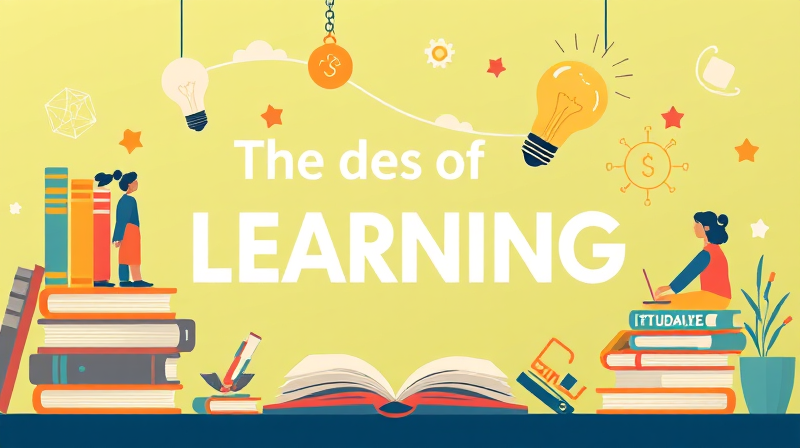Choosing the right educational materials is a critical step on your journey to academic and professional success. When you are aware of your learning objectives, you are better equipped to select resources that will empower you to thrive. This article provides an inspiring guide to help you select and assess study materials effectively.
Defining Your Learning Objectives is essential when beginning your search for study materials. Start by clarifying what you want to achieve. Your learning objectives should be clear and focused, as they play a pivotal role in determining the types of resources that will benefit you most.
Exploring a Variety of Study Resources
It is vital to consider multiple types of materials to support diverse learning styles. Different resources can complement each other and provide deeper understanding. Here are some options that you might explore:
- Textbooks and academic articles: Traditional resources that offer detailed explanations and theories.
- Video lectures and demonstrations: Visual aids that help in understanding complex subjects.
- Interactive online tools and simulations: Platforms that engage you through hands-on practice.
- Audio resources such as podcasts: Great for auditory learners who benefit from listening.
- Hands-on exercises and practice problems: Essential for reinforcing what you have learned in a practical way.
Using a combination of these materials can not only help keep your study sessions engaging but also ensure that you learn in a well-rounded manner. Each resource adds a unique element to your educational experience, catering to varying learning needs.
Remember that combining diverse methods of study is like building a strong foundation for your future success. The more angles you approach a subject from, the more comprehensive your understanding becomes.
Evaluating Content Quality
Once you have identified potential resources, it is crucial to assess the quality of the content. Evaluating various aspects of the study materials helps ensure that they meet high academic standards and align with your learning objectives.
- Accuracy and currency: Confirm that the information is up-to-date, relevant, and free from errors.
- Clarity and accessibility: Ensure that the content is understandable and presented in a digestible format.
- Comprehensive coverage: Look for materials that explore topics in depth and offer varied perspectives.
- Practical examples: Resources that include examples and real-life applications can enhance your grasp of the material.
Effective study materials should be a reliable and engaging source of information. You deserve content that is not only informative but also inspiring and easy to navigate as you continue your academic or professional journey.
Assessing Usability and Accessibility
Equally important is the practicality of the study materials. Considering how easy they are to use will help you make the most of your study time. Ask yourself:
- Is the material logically organized? A well-structured content layout can make learning far less intimidating.
- Can I access it on multiple devices? Material compatibility with your devices and learning platforms is essential in today’s digital age.
- Does it meet specific accessibility needs? Look for features such as captions, transcripts, or even alternate text for images that reflect a thoughtful design.
When study materials are user-friendly, they become powerful tools for learning. They allow you to navigate complex data with ease, ensuring that your focus remains on understanding the subject matter rather than wrestling with technical difficulties.
Cultural Responsiveness and Inclusivity
Another critical factor is cultural responsiveness. Materials that embrace diverse perspectives not only improve engagement but also enrich your learning experience. When resources acknowledge and respect different cultural backgrounds, they provide an inclusive viewpoint that can be transformative in today's world.
By selecting study materials that embrace diversity, you create an environment where learning is accessible and reflective of a broad range of experiences and ideas. This holistic approach is especially important for fostering creative thinking and empathy.
Utilizing Assessment and Feedback Tools
It is always a good idea to use assessment tools in order to critically evaluate your study materials. Tools such as rubrics, checklists, or even peer reviews are invaluable in this process.
- Rubrics: Use these criteria-based tools to grade and understand each aspect of the material.
- Checklists: Develop a well-thought-out list that covers essential features and markers for success.
- Peer reviews: Getting input from fellow learners or educators can provide fresh insights and alternative perspectives.
- Trial periods: Whenever possible, test out materials before committing fully. This approach helps you ensure that the resources align with your expectations.
Using these strategies will empower you to choose resources that not only match your learning objectives but also maintain the highest quality. Your educational journey is deeply personal, and selecting the right study materials is the first step towards success.
Feedback is another pivotal element of your study routine. Whether you are learning independently or as part of a group, gathering constructive feedback through surveys or focus groups will help you identify what works well and what might need improvement. This continuous feedback loop is essential for refining your resources and ensuring long-term success.
Remaining open to reassessment and change is vital. As your understanding evolves and new challenges arise, be prepared to adjust your study materials accordingly. This flexibility ensures that your learning remains dynamic and responsive to the current educational landscape.
In conclusion, the process of selecting and assessing study materials is not just about acquiring information—it is about creating an empowering environment where learning flourishes. Use these tips to ensure that every resource you choose is a stepping stone towards achieving your broader goals. Remember, the perfect study materials should inspire, challenge, and support you all along your educational journey.
The endeavor of crafting a personal collection of study materials is continuous. With every new resource evaluated and every new subject explored, you are investing in a brighter, more knowledgeable future. Embrace the process, trust your instincts, and let the pursuit of learning ignite your passion for discovery.







